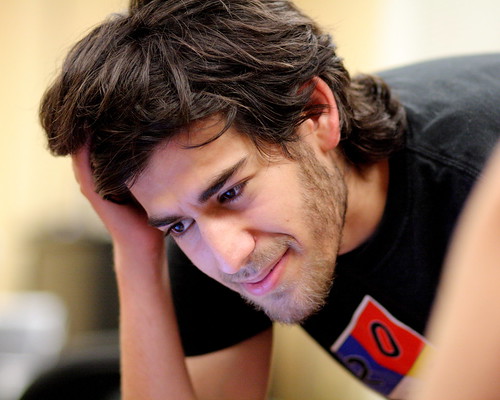
Aaron Swartz was not a name I would have recognized before his death. But, in the days since, I have read a lot on how this genius, who fought for public good, was pushed to suicide by the US Department of Justice. It has left me appalled, angry and disillusioned.
Aaron was a hero. He was able to use technology for greater good. RSS, Reddit, Demand Progress - the group which campaigned against SOPA to name some of the more recognizable things with which he was associated. For someone like him to fall, for someone who had achieved so much and had the company of many illustrious people, it seeds so many doubts in one’s mind. If someone like Aaron can be ensnared by these unethical corrupt people, what should those of us with far lesser abilities do?
There are two more things that make Aaron’s case more painful for me.
At my college, there was print as well as digital access to IEEE and ACM journals. For a reason I still don’t understand, these journals could only be accessed from specific computers in the “digital library” and not from your machine. I know I had a privilege few others have even with this limited access. But, I still couldn’t help but wonder why does IEEE or ACM need to charge me money for PDFs? All these papers have tons of citations. Why can’t we browse though them as easily as one does at Wikipedia without paying money? Aaron Swartz thought similarly. He mass-downloaded academic articles, meant to be in public domain, from JSTOR and was charged with decades of imprisonment and millions of dollars in fines for doing so. Aaron wished that everyone on internet should have access to this information. His method may have been wrong, but his intent wasn’t. Sadly, this world treats those whose intent is wrong, but methods are right in a much better way.
I wanted to go to MIT to do my bachelors, but wasn’t selected. For as far back as I can remember, MIT has been the place for hackers, not just in CS. For this iconic organization to give up its ideals and call police/secret service on a guy who was downloading academic papers is heart-breaking. Was there no one at MIT who could have talked to Swartz, made their position clear and work with him on getting free access to research papers? Much before online courses became cool, MIT had launched OpenCourseWare back in 2002 to take its education to everyone. MIT’s President has ordered an investigation in to its role in the Swartz incident to be led by Hal Abelson, one of the people behind OCW.
I hope MIT comes clean on this.
There is something I will personally do now to honor the memory of Swartz. I will build an option where users can export their data from Allotrop. The madness that is out there where one service specifically blocks another service from accessing its data is wrong.
I will remember this hero in my thoughts and work for the change he sought.
Here is the memorial video for Swartz held at the Internet Archive.